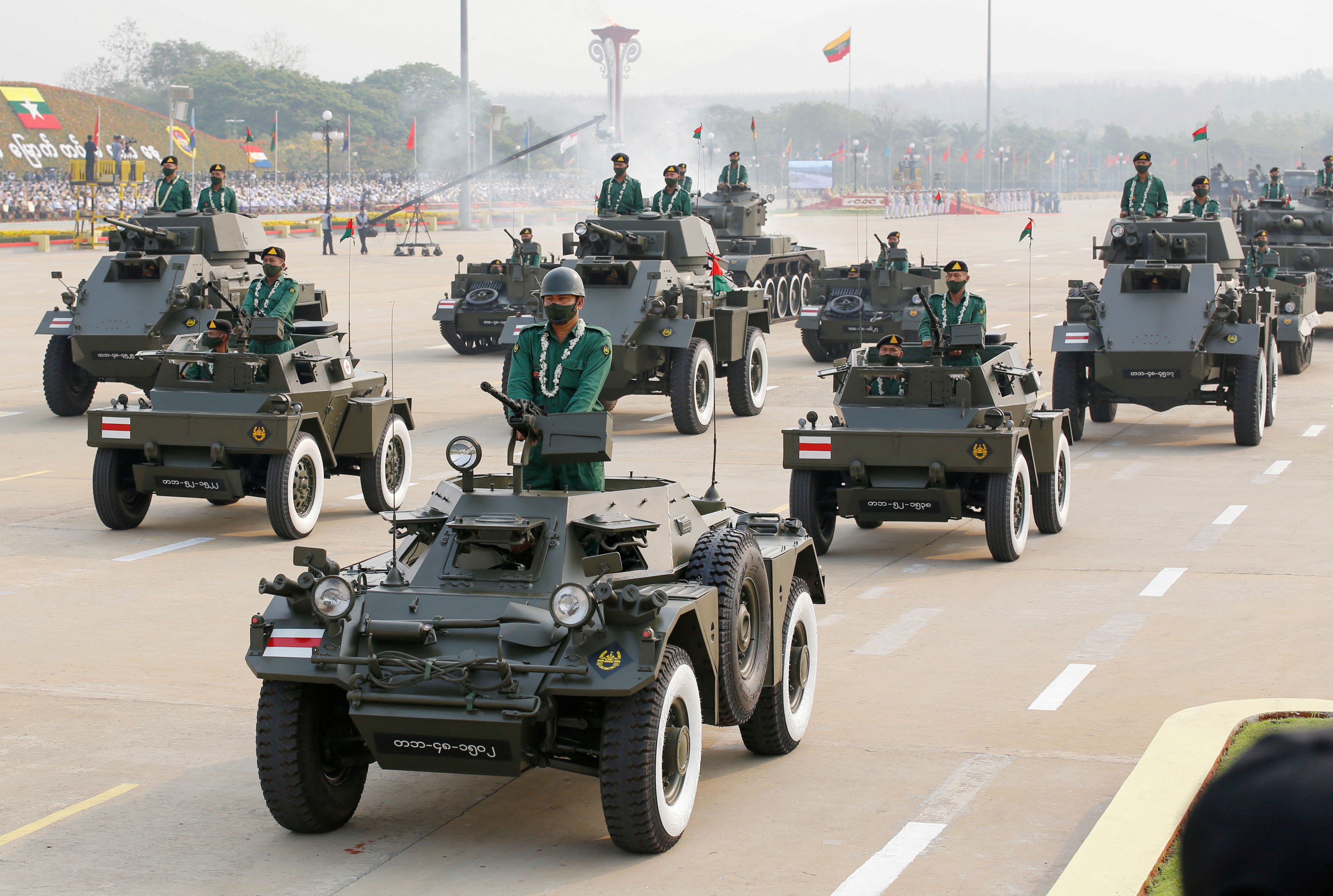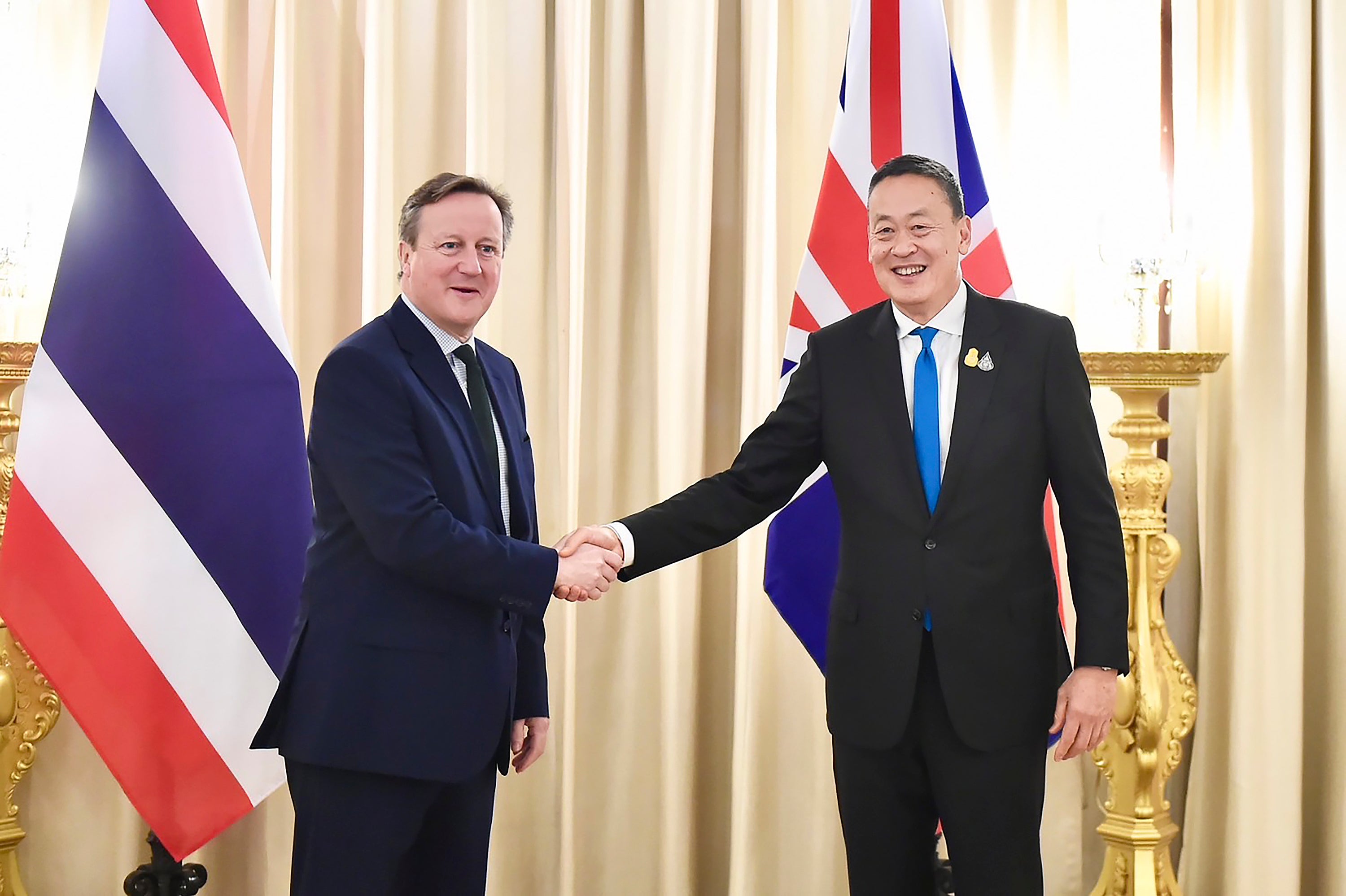Thai PM claims time to make a deal with Myanmar as regime ‘losing strength’
Thailand has been pursuing multiple engagements with Myanmar since Srettha came to power last August

Your support helps us to tell the story
This election is still a dead heat, according to most polls. In a fight with such wafer-thin margins, we need reporters on the ground talking to the people Trump and Harris are courting. Your support allows us to keep sending journalists to the story.
The Independent is trusted by 27 million Americans from across the entire political spectrum every month. Unlike many other quality news outlets, we choose not to lock you out of our reporting and analysis with paywalls. But quality journalism must still be paid for.
Help us keep bring these critical stories to light. Your support makes all the difference.
The Thai Prime Minister has said now is a good time to open talks with Myanmar as the military regime that seized power in a 2021 coup is weakening.
Myanmar is in the throes of an insurgency on multiple fronts, with allied anti-junta groups backed by a pro-democracy parallel government seizing control of several military posts and towns, including parts of a key town on the border with Thailand over the weekend.
The insurgency is the biggest challenge the Myanmar junta has faced since it mounted a coup against an elected government in 2021.
“The current regime is starting to lose some strength,” Srettha Thavisin said in an interview on the resort island of Samui on Sunday, adding, “but even if they are losing, they have the power, they have the weapons.”
“Maybe it’s time to reach out and make a deal,” he said.
Thailand has been pursuing multiple engagements with Myanmar since Srettha came to power last August, including delivering aid to Myanmar under a humanitarian initiative aimed at paving the way for talks between warring camps.
The Thai parliament also hosted a seminar last month on the political situation in Myanmar that included the appearance of opponents of the Myanmar’s military, despite the junta’s objection.

Srettha said Myanmar was very important for Thailand and he and other Thai officials have been talking to various stakeholders in Myanmar and international partners including China and the U.S.
“The country that stands to gain most if Myanmar becomes unified, peaceful and prosperous is Thailand,” Srettha said.
The Thai government will not take sides in international conflict and its policy will be to address conflict peacefully, government spokesman Chai Watcharong said in a statement on Monday after media enquiries about the situation in Myanmar.
Srettha said he is planning to talk to cabinet ministers, senior military and security officials on Tuesday to streamline government policies on Myanmar.
“I’m meeting with five or six people who are the key players and make sure that we are on the same page,” he said.
The Thai Prime Minister also said this week that the central bank should cut its key interest rate by at least a quarter point this week to support government efforts to revive Southeast Asia’s second-largest economy.
“Given the inflation numbers, which are still negative, my expectation is perhaps not even 0.25 (point cut), maybe 0.5, because it’s long overdue. It should have been cut since late last year,” Srettha, 62, told Reuters in an exclusive interview.
The Bank of Thailand has so far resisted government pressure to ease policy, holding it benchmark interest rate at 2.50% in February, the highest in more than a decade. Most economists expect rates to be held at its next review on Wednesday.
Join our commenting forum
Join thought-provoking conversations, follow other Independent readers and see their replies
Comments